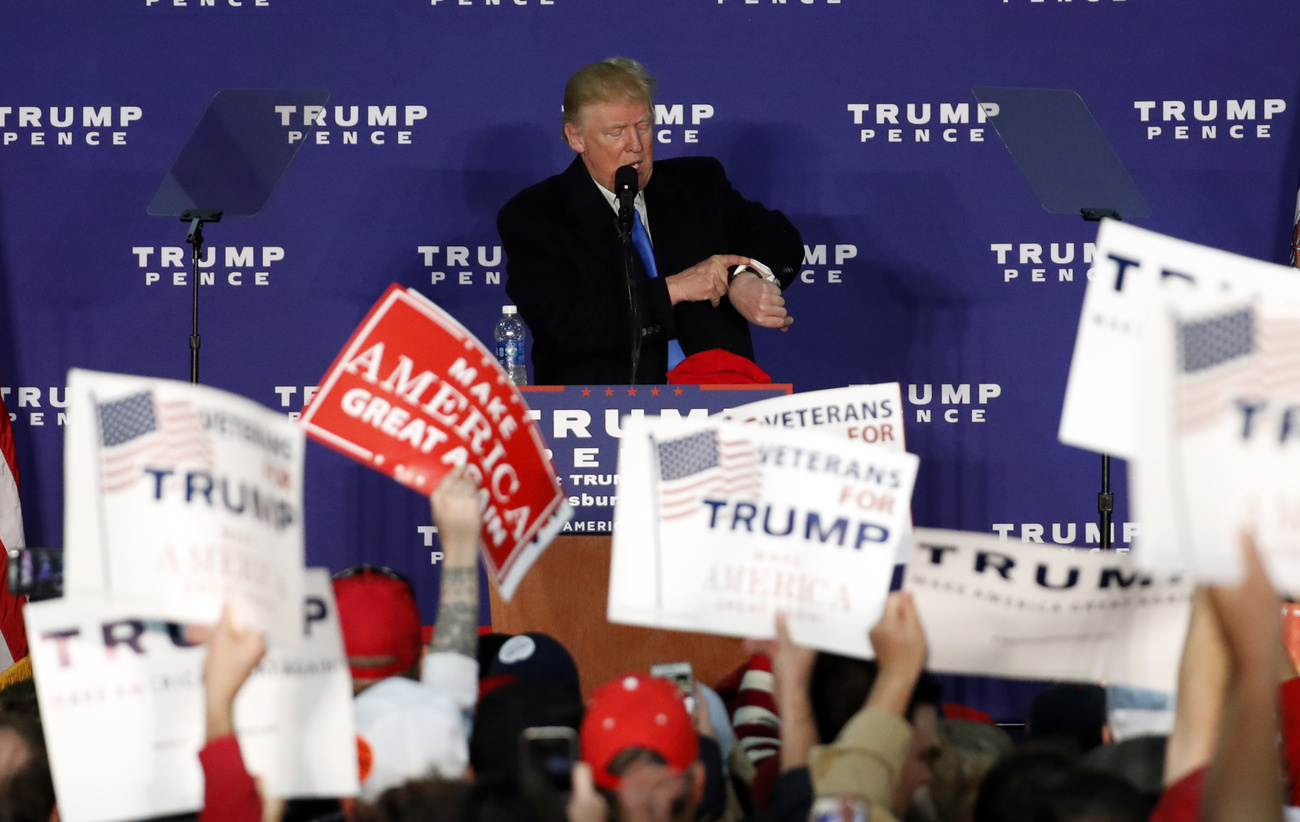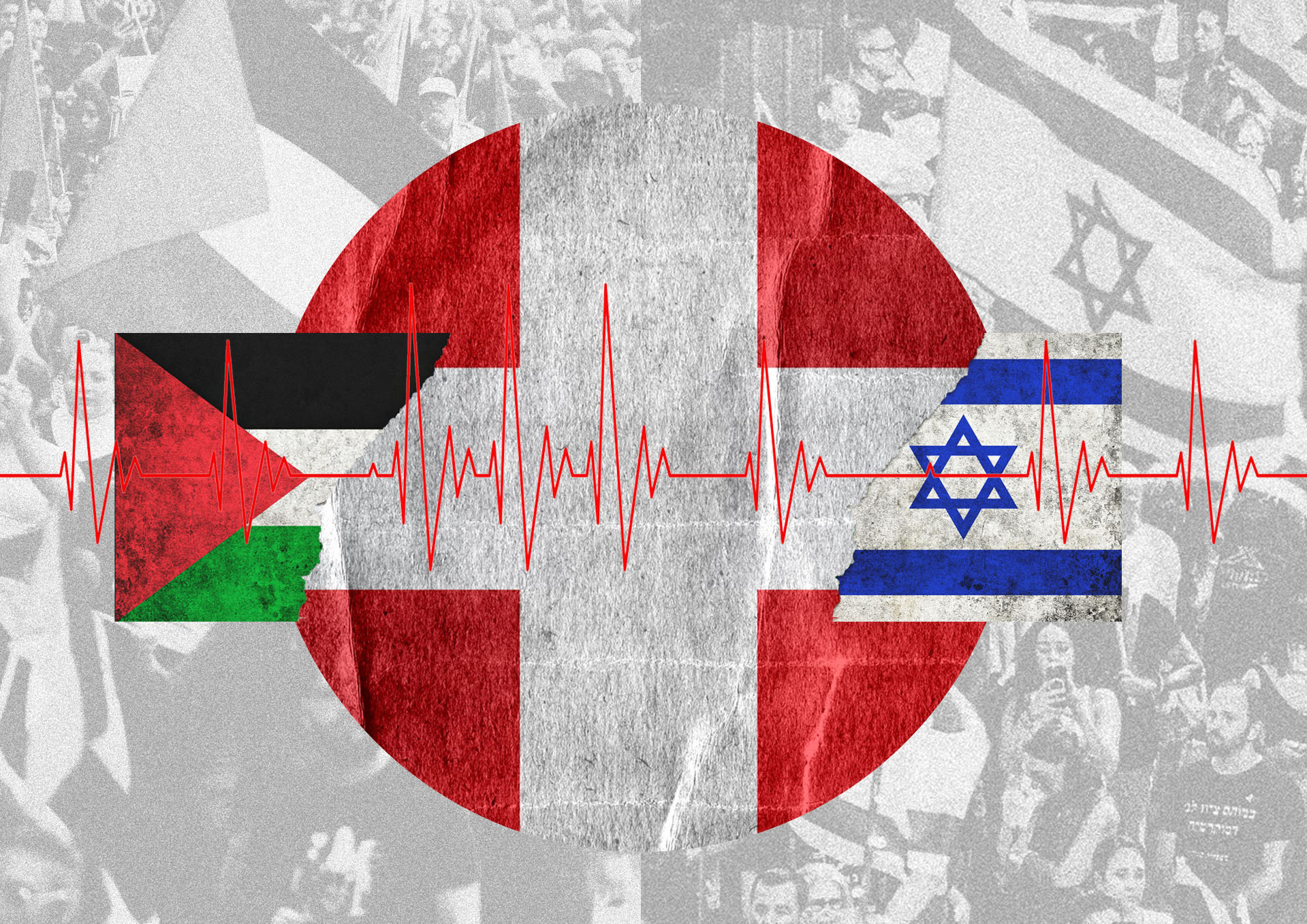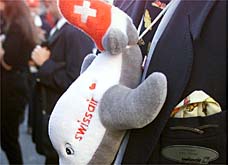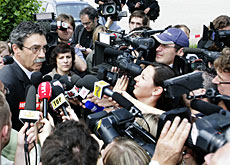
Press echo indignation over Swissair verdict

The Swiss press have reflected general frustration over the acquittal of all 19 defendants in the Swissair trial, while describing the ruling as predictable.
On Thursday a Zurich court cleared the former Swissair managers and advisors of bringing down the airline with criminal malpractice, and awarded compensation totalling more than SFr3 million ($2.5 million).
While certain papers called the decision “scandalous” and a “fiasco”, others were more balanced and focused their attacks on the weaknesses of the Swiss criminal law system.
A majority of commentators denounced the fact that incompetence and arrogance were not punishable and reserved particular criticism for the work of the public prosecutor.
“The prosecutor had a difficult job to do and he did it very badly,” wrote the daily Tages-Anzeiger newspaper, adding that his arguments had been “brutally taken apart” before the court.
This position was also supported by the Zurich-based Neue Zürcher Zeitung and Bern’s Bund, which claimed the charges were so weak that the trial only took place as a result of outside pressure.
“Here in Switzerland it’s still not a crime to be stupid and incompetent. To make management errors even with the best intentions in the world is not punishable by Swiss criminal law,” wrote the French-speaking tabloid Le Matin.
“But in the economic world the worst punishment is a damaged reputation… and [in this respect] the former Swissair bosses are ‘finished’,” it added.
“Economic ineptitude”
The Tribune de Genève and 24heures newspapers from the French-speaking region were equally harsh.
“Everything is forgiven. Even economic ineptitude!” read their headlines. “The Swiss legal system is incredibly offensive.”
For the Basler Zeitung the Swissair bosses were incapable of saving the airline when it got into difficulties but “incompetence is not punishable”.
Which for the Bund is a good thing: “Otherwise every other manager would have one foot in prison.”
The mass-circulation Blick makes a comparison with business scandals in the United States, in particular at Enron and Worldcom: “We have a lot to learn from the US in this area by strengthening our laws and legal proceedings.”
Predictable
The Fribourg-based Le Courier newspaper resumed many other commentators’ thoughts about the predictability of the decision: “The powerlessness of the Swiss legal system has once again exploded in public.”
“Criminal law can do nothing when faced with business crimes,” added the French-speaking regional newspapers L’Express and L’Impartial.
The court’s legal verdict itself does not raise too many questions among the editorialists.
“Mistakes were made which were punished by financial ruin, therefore, from a legal point of view none of the 19 accused has incurred a penalty,” wrote the Neue Zürcher Zeitung.
And for the Lucerne-based Neue Lucerne Zeitung the judge had had no other option than to clear the 19 defendants.
While certain observers criticise the waste of taxpayers’ money, the French-speaking Le Temps newspaper welcomes the fact that the trial took place, as it contributed indirectly to bringing to light the “considerable errors” made by the management.
“The acquittal does not mean that the defendants are not responsible,” it adds, while looking ahead to the civil cases being brought against the Swissair managers which might cost the former bosses “hundreds of millions” of Swiss francs.
swissinfo, Simon Bradley
Swissair planes were grounded in October 2001, after the company had been in business for 71 years.
The downturn in the aviation market after the terrorist attacks of September 11, 2001, proved the last straw for the heavily indebted Swissair, which folded the following year.
The airline collapsed because it over-extended itself by buying stakes in numerous loss-making airlines, including Belgium’s Sabena and Poland’s Lot, in an attempt to form its own airline alliance.
The remains of Swissair and the regional carrier Crossair were brought together in 2002 to form the new national carrier Swiss, which was in turn taken over by Germany’s Lufthansa in 2005.
“It is certainly not a popular ruling; but justice is a relative concept. The trial focused purely on criminally liable matters, but there are also moral and civil aspects. From a penal perspective they were innocent and that is why they were cleared, but it was a court of first instance. We’ll have to see if the prosecutor lodges an appeal. And if so, an appeal court might give a different verdict.
The court decided that the business decisions, such as the restructuring or investments in Sabena, were only punishable if due diligence had not been exercised.
The most important thing about this verdict is that a reorientation has taken place in the business world. Although there were no sentences, it’s clear that heads of business, in particular executive board members, have a responsibility that they have to take seriously.
If they don’t they run the risk of being criticised for lacking due diligence which could lead to a sentence.”

In compliance with the JTI standards
More: SWI swissinfo.ch certified by the Journalism Trust Initiative













































You can find an overview of ongoing debates with our journalists here . Please join us!
If you want to start a conversation about a topic raised in this article or want to report factual errors, email us at english@swissinfo.ch.